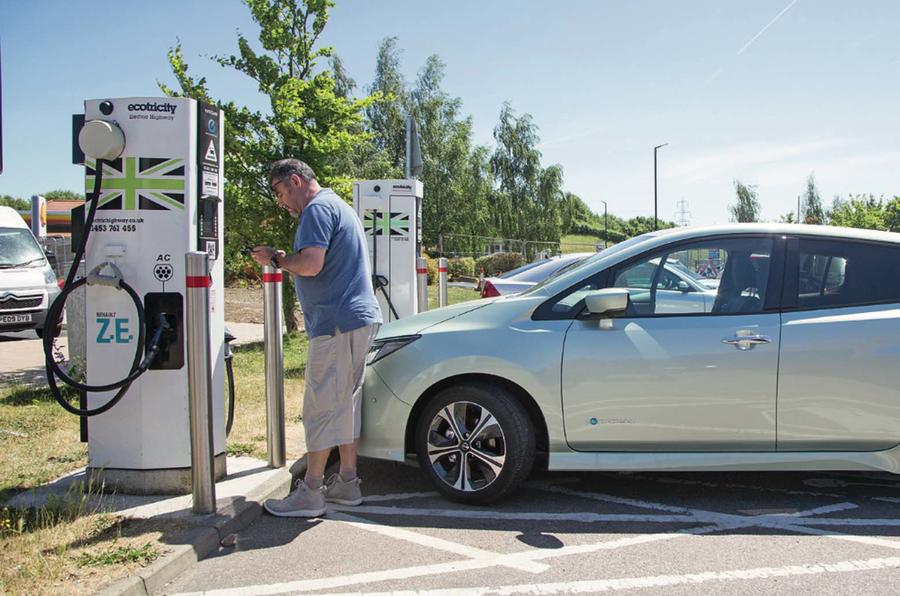Members of the House of Commons Business, Energy and Industrial Strategy Committee have many and varied backgrounds: as well as career politicians, there’s a barrister, someone who sailed with the merchant navy, people who ran estates and farms or worked mines or sat on the board of an electrical company.
But can any of them operate a calculator? I ask because they’ve called the government’s Road to Zero plan, which will require all cars sold in the UK by 2040 to have a worthwhile electric range, “vague and unambitious”. Plus, they’ve suggested – in that ‘zero-means-zero’ way that’s so popular these days – that all cars sold in the UK should be all-electric by 2032. They’d like to be a bit more serious about vans and lorries too.
Which is certainly ambitious, because the government is currently canning incentives to buy part-electric vehicles, while the infrastructure to provide electric power has been left to local authorities and private businesses.
As the BEIS Committee notes, in a release that contains some noble intentions, these things seem at odds with government hopes that EVs will enter mass roll-out. It thinks incentives should be kept or introduced to make EVs the same price as comparative internally combusted alternatives. Which sounds laudable, if expensive.
It also thinks central government should “recognise its responsibility” in the role of creating a national charging infrastructure. And if we really want EVs to be the way we travel, it’s right. Vehicle range isn’t good enough and charge points aren’t widely available enough and the cars aren’t cheap enough to make battery EVs the cars people routinely look to buy right now. They suit certain drivers, but will need tosuit us all. If they did, we’d all already want one.
I wonder, though, if the committee has quite grasped how big such an infrastructure would need to be – unless the fuel cell/another on-board power source makes an unlikely, though perhaps desirable, comeback.
Anyway, EV charge points are currently being added at around the same rate as plug-in vehicles. Most at the moment are at people’s houses, because the vast majority of EV charges take place at home overnight. But more than 40% of Britain’s homes don’t have the capacity for that. So publicly available chargers, or chargers on the street dedicated to residents who don’t have off-street parking, will have to see a massive rise in proportion.
Is it reasonable to assume that ultimately we’ll want just as many charge points as there are cars? I suspect, ideally, you’d want more plug sockets than vehicles, so that there’s enough redundancy for ease of use. But let’s assume the one-to-one ratio is desirable. There are 31 million cars in the UK and the average car on British roads is eight years old.









Join the debate
Add your comment
Talking of safety, how about
Talking of safety, how about EMI ?
Have we really thought about electric car safety?
Each article I read about electric vehicles it features the range ( too low to compete with an internal combustion car) & the 0-60 time. Its the latter that hasn't been thought through properly. If these cars are to be used in our inner cities the combination of poor sight lines due to parked vehicles, motorbikes and cyclists weaving in and out of traffic and some muppet with his SuperSpark GT with a 0-60 time of less than 5 seconds deciding to go for a gap silently is surely a recipe for disaster? Manufacturers would be better off concentrating on limiting the acceleration to give longer range, there also needs to be a noise generated better than a milk float whine that penetrates enough for visually impaired people to hear but doesnt cause irritation to most of us. Whilst I agree with the idea of electric cars in principal we could swap one problem ( pollution) for another ( increased casualties on our inner city roads) The problem will become worse if electric cars are allowed to roam into current pedestrian only areas as the dont cause pollution. I had an incident today in Exhibition road in London, a 20mph limit with the road laid out to mix pedestrians and traffic, my diesel car is particularly quiet at 15mph so a tourist coming from behind a parked van didnt hear or see me until he was level with the centre of my bonnet, fortunately I did see him in plenty of time and stopped to the relief of a shocked young man!
Almost all your charging will
Almost all your charging will be done at home or at work (destination points). Thats where the emphasis needs to be.